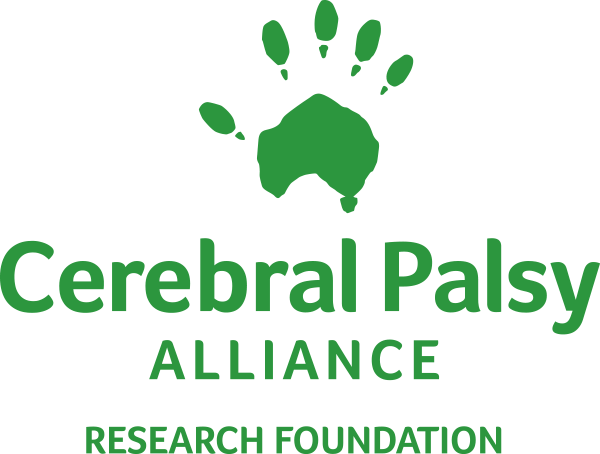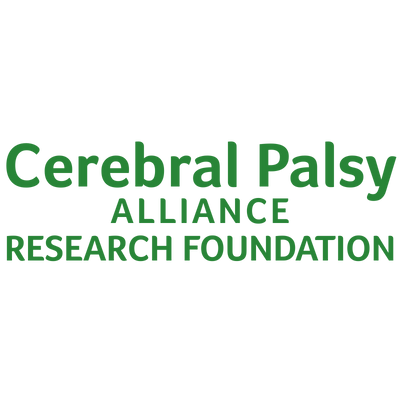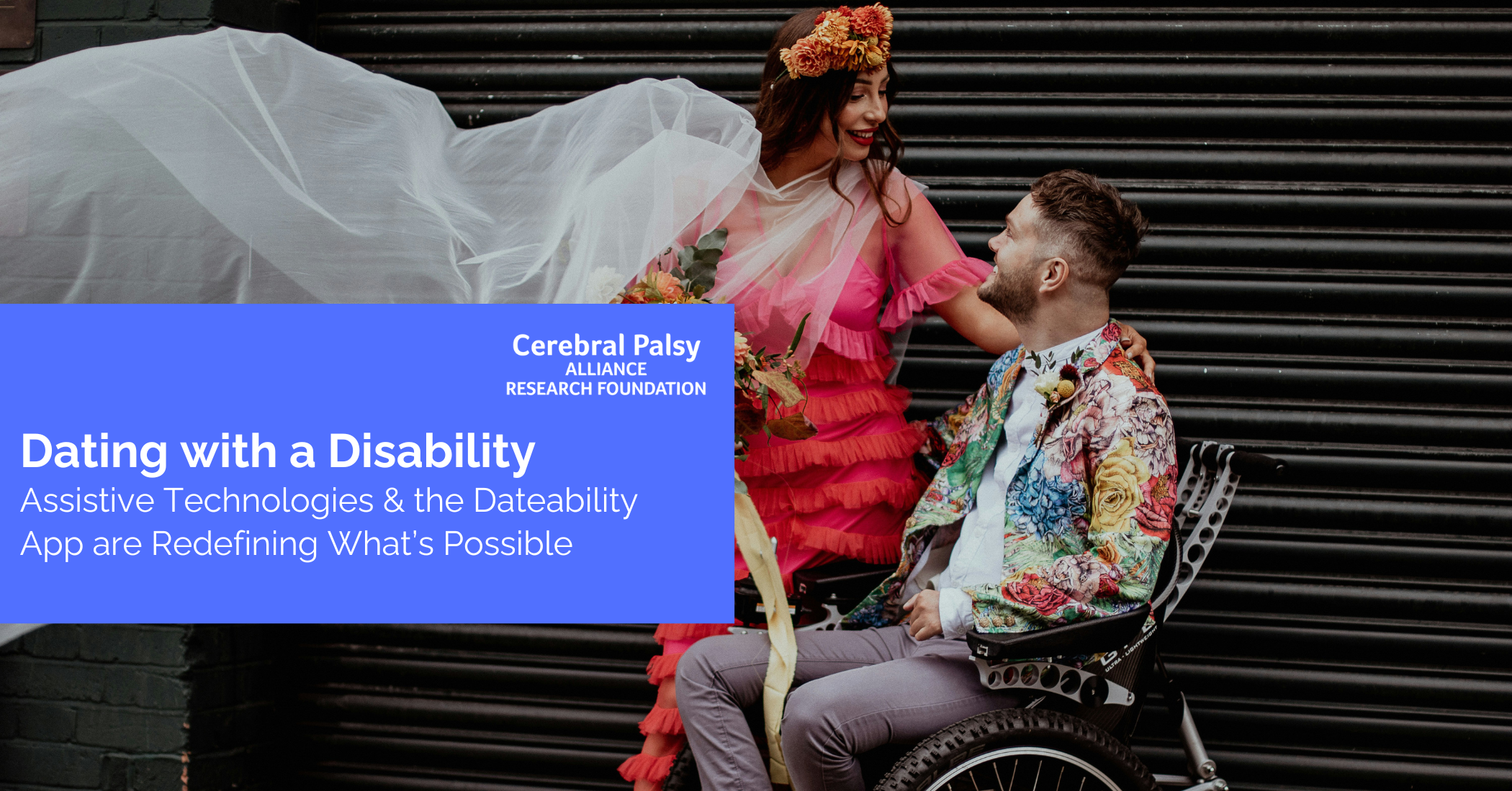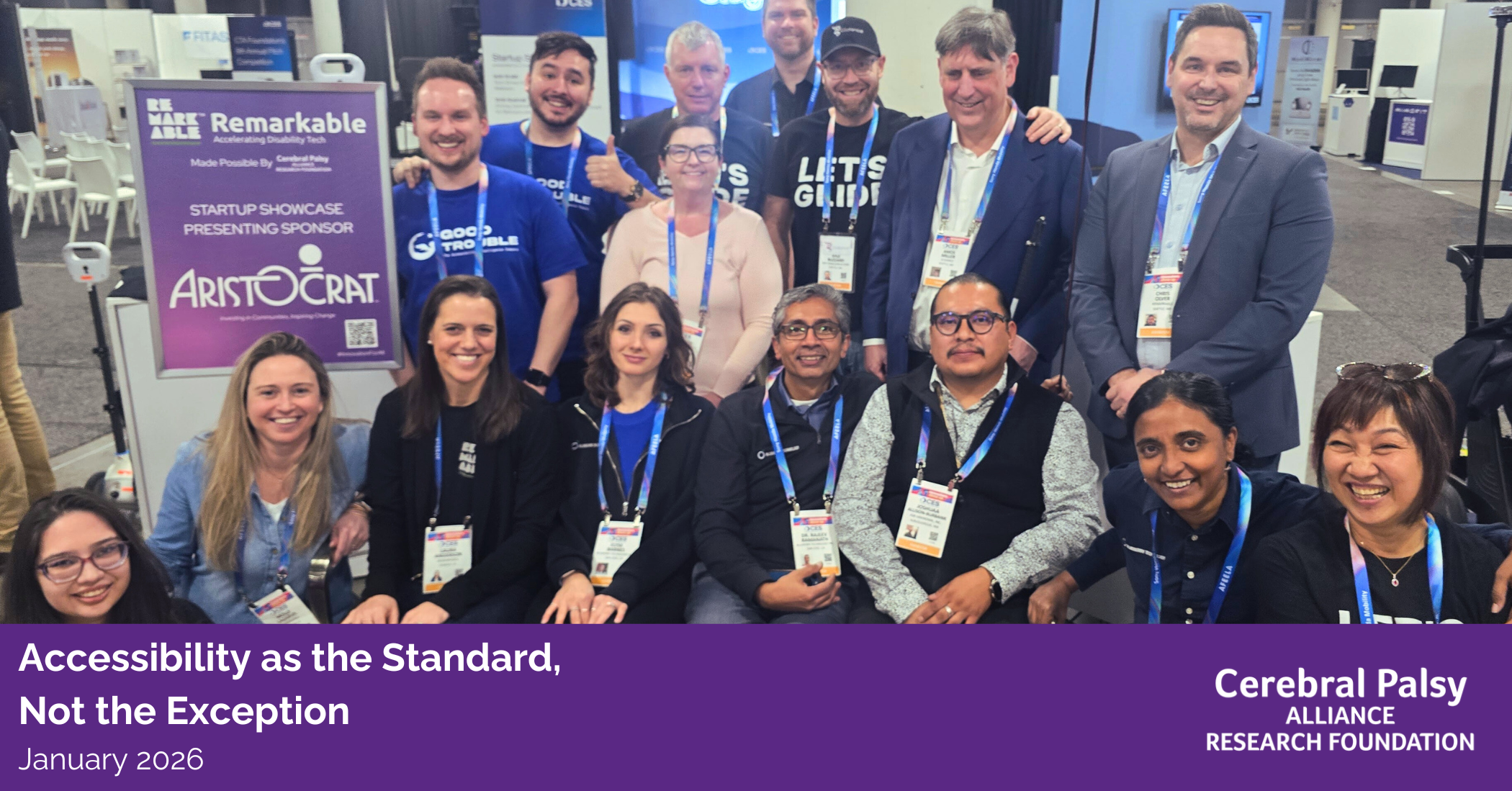
We're continuing to amplify the voices of the cerebral palsy community. Check out Liz's story.
KEEPING IT REAL: Liz's Story*
By Liz Venendaal
For as long as I can remember, I have adamantly said that CP is just a piece of me. Although I can honestly say I have never been ashamed of that piece, how and where I placed it in the jigsaw that is life wasn’t always healthy. I see that now.
My mother often tells the story of one of the first times that I acknowledged my disability. I was about five years old at the time and had less than a year of independent walking under my belt. We were out as a family at an amusement park when we approached one of those huge, netted jungle gyms with rope ladders, shaky bridges and obstacles to jump over or climb through. As excited as I was, I’m sure my parents were equally unsure as to how I was going to be able to pull this off.
I couldn’t tell you what went on in there but I can imagine it wasn’t pretty. Nonetheless, I did it.
When I emerged from the netted jungle gym, I saw two older women sitting nearby. They called out, “Good job little girl! You’re doing great.” Without skipping a beat, I turned and replied “Everyone else is doing much better.” I wasn’t upset or discouraged. I was just stating a fact.
And there it was. My realization of my disability, its challenges and not knowing where I fit it because I most certainly didn’t move through the amusement park that day, or anywhere else, like everyone else.
I couldn’t tell you if I remember trekking through that jungle gym or responding to those women, or if my mother’s retelling of that experience left it illustrated in my mind. I do know that for as long as I can remember, I have felt that way. I have felt like I had to work a lot harder to not only get things done, but to prove to myself and others that I could. The challenges have never changed and I remain undiscouraged by that fact. It just is. What did change was my willingness to talk about them.
As I grew older, I stopped being vocal about my disability. The challenges were ever-present but I no longer wanted to acknowledge them, never mind point them out. I wanted to ensure that those around me knew that CP was but a small piece of me, and in drilling that point home, I pushed the truth of my cerebral palsy and its impact on my life aside.
I moved through the years that followed with certain level of sadness and confusion as to how I was perceived by others. I knew no different than a life with cerebral palsy. But the reaction of others was a constant reminder that CP made me different. The more my world made me feel disabled, the more disabled I became. To disable literally means “to put out of action.” CP aside, I was no doubt disabled. I was anxious, depressed, and felt misunderstood.
After feeling that way for far more seasons than I’d care to admit, I realized that it was time to make sense out of who I was with my CP, not in spite of it. I decided that the only way to stop people from telling me who I was or where I fit in was to tell them myself.
It was with this renewed spirit that I went from feeling unsure of my path to feeling empowered to create it. In rediscovering my voice and speaking my truth in a way that would make my five-year-old self proud, I gained clarity. I can now see that through the limitations of CP, I have gained tremendous strength that I would not otherwise have. I believe this to be true for myself, and each of us who navigate this world with a disability. I now dedicate my life to coaching people with disabilities to discover their own path, overcome roadblocks, and lead a life they love.
Life coaching has become far more than a career; it is my purpose. I have the privilege of helping my clients unpack the many strengths that lie within their limitations so that they can achieve their goals. It is only when we acknowledge the reality of our circumstances that we can decipher what is within our control so that we may propel our lives forward.
My goal as a life coach is to rewrite the narrative of disability for my clients and the lives they touch. I have been able to take this mission that much further through an incredible partnership with Berry Fowler, the founder of the Sylvan Learning Centers and Fowler International Academy of Professional Coaching (FIA), where I became certified. Together, Berry and I created We Live Without Limits — a specialized division of FIA that promotes the message that it is our challenges that create strength and character. Those traits place us in a unique position to be an effective and successful coach. They are to be celebrated — not minimized or pushed aside. The gravity of the weight they carry can be used to create positive change for ourselves and for others.
As someone who also spent many years searching for a legitimate work-from-home career, I am thrilled to have We Live Without Limits to share this home-based opportunity and promote the message of empowerment, diversity, and inclusion.
As the director of We Live Without Limits, I personally provide ongoing support and career training to people who want to create a rewarding, successful, home-based business as a life coach. My work has been such a blessing and the community that we have created through We Live Without Limits continues to grow and solidify our mission.
If I could go back and talk to my five-year-old self, I would say the same thing I want everyone to know and the message I lost sight of for far too long. Use your big, bold, beautiful voice to tell your story. And, don’t leave out the hard parts. The hard parts are exactly what will remind you and everyone else that you live without limits.
*Liz's story is part of KEEPING IT REAL — a series of personal stories that will take you deeper into the lives of people with CP. Each person makes different choices based on what works for them, and we’ll showcase that — highlighting what life is like for them on a daily basis, what they care about, and the ways CP impacts them.
The KEEPING IT REAL blog is intended solely to raise awareness about the varied human experience with cerebral palsy and shouldn't be read or construed to contain any medical advice or medical endorsement by Cerebral Palsy Alliance Research Foundation. Only you and your doctor know what's best for you. Please consult your doctor for medical advice.
Wed 11 Feb 2026
An update on one of our most important initiatives: expanding access to life-changing assistive technology for Native Americans with disabilities.
Fri 23 Jan 2026
An update on one of our most important initiatives: expanding access to life-changing assistive technology for Native Americans with disabilities.




